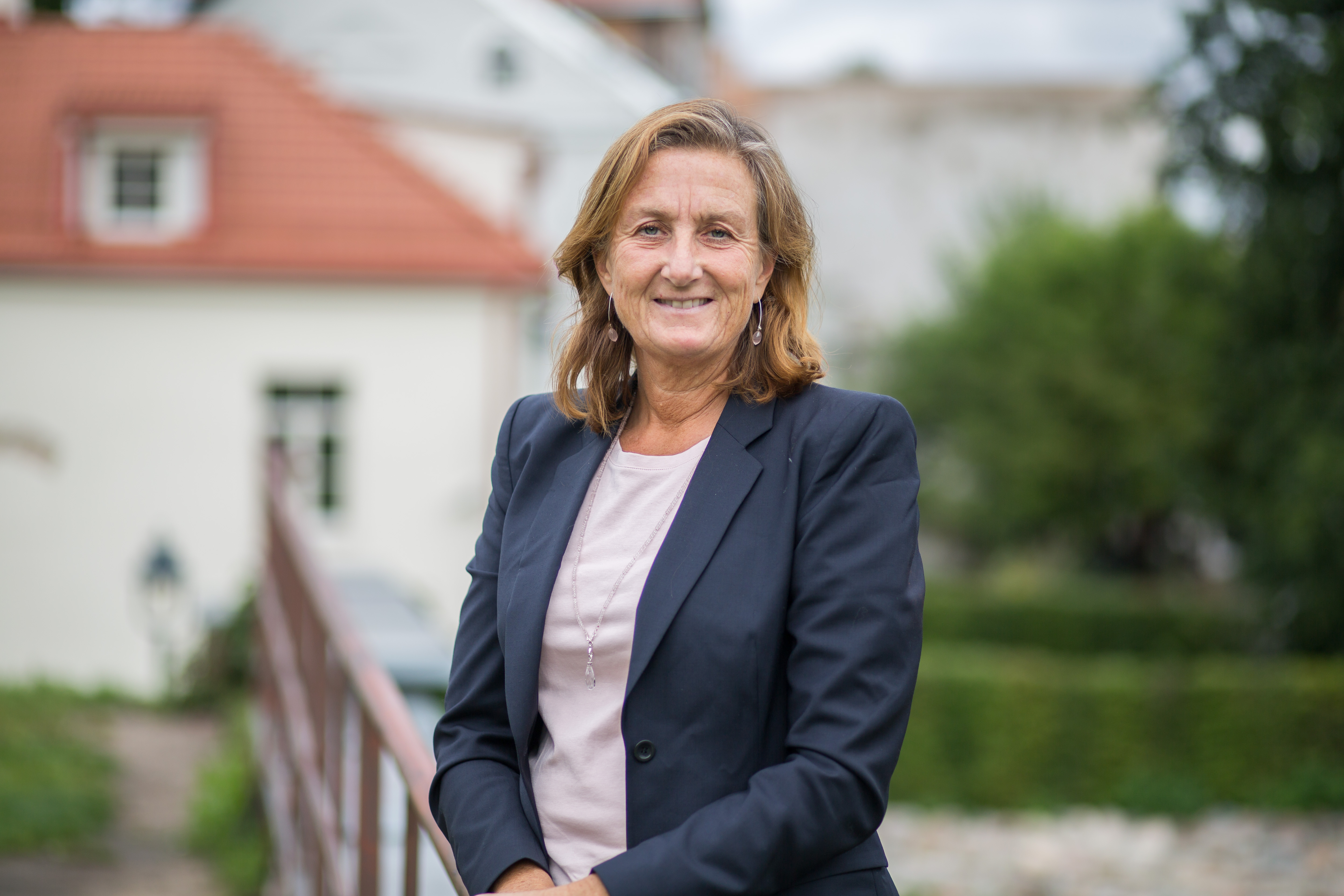Director of the Nordic Council of Ministers Office in Lithuania: “The Nordic-Baltic region must take the lead in ensuring that children and young people thrive!”
2019/05/28

Initiated by the international organisation “Reach for Change” as well as by the Nordic Council of Ministers Office in Lithuania, project “100 Social Innovators for the Next Century” emphasises the importance of assurance of children rights and equal opportunities driven by the civic society and social innovators. This project aims to create a better world for all children, while at the same time unleashing the power of social entrepreneurship and innovation.
The importance of involving children and young people in all aspects of social life is discussed with Helén Nilsson, Director of the Nordic Council of Ministers’ Office in Lithuania.
Your organizations strategy says that Nordic Region must be the best place in the world for children and young people. How do you plan reaching such objective?
I am very proud to be part of this organisation and will do my absolute best to work towards the implementation of this vision! Our most important objective is to establish good living conditions for all young people. Hence, I would like to stress that fundamental rights to good living conditions must be achievable by all children and young people, regardless of their gender, ethnic, cultural or socioeconomic background.
This is why the Nordic Council of Ministers has raised the issue of children and youth at the political level and has adopted a strategy to help achieve this goal. This strategy is closely linked to the United Nations Convention on the Rights of the Child (UNCRC) and has a unique status in Europe. It sets out concrete measures and creates favourable conditions for the Nordic governments to represent the interests of children and young people by allocating all necessary resources. This commitment means that many of my organisation’s activities have been directed directly towards children’s wellbeing.
“100 Social Innovators” focuses on improving lives of children and youth through social entrepreneurship. In what ways have young people in the Nordic-Baltic region benefited from this initiative?
First and foremost, young innovators have had a unique opportunity to take part in all the events of the project, thus, gaining experience in the field of social entrepreneurship. Secondly, participants were given a chance to meet their peers, expand their circle of friends and establish new business contacts. We also seek to bring together an international team of innovators that could share their intellectual potential and learn from others.
You had an opportunity to meet many social entrepreneurs from across the Nordic-Baltic region and familiarise yourself with different competition ideas. What were your main impressions? What would your advice be to current and future social innovators?
After meeting all the participants, I realised that there are no limits when it comes to development of great ideas. I was very impressed with the professionalism as well as the enthusiasm of these young and motivated creators. My main advice for young innovators would be to identify their target market and understand how their newly attracted audience could benefit from their business.
The overall aim of this project is to create a better world for children through innovation. From your personal standpoint, what do children of the region lack the most? What concrete steps should be taken in order to improve the wellbeing of our children?
First, we need to remember that children and youth is not a homogenous group. Each group has different needs and, hence, different steps must be taken in order not to exclude anyone!
We must work hard to be able to offer a school system that is suitable for all children and to support the children in need. The Nordic-Baltic region must take the lead in ensuring that children and young people thrive, know and exercise their rights and participate in decisions that affect their very own lives. Children and young people are important here and now, not just in the future. And I, together with my team, invite Lithuania to participate in this important mission!
In your opinion, what could Lithuania offer to the neighbouring Nordic countries in the sector of social innovations? Does Lithuania have enough innovative potential and resources to become the frontrunner in this field?
Absolutely! I think Lithuania can definitely be a frontrunner in this field. Many young Lithuanians have valuable experiences of working and learning both abroad and in their home country. All we need to do now, is to create favourable conditions that would allow young innovators to implement their ideas and turn it into new realities! I hope I can contribute to this Nordic-Baltic movement for meaningful and inclusive co-cooperation and start a dialogue with young people on how to find best solutions together!